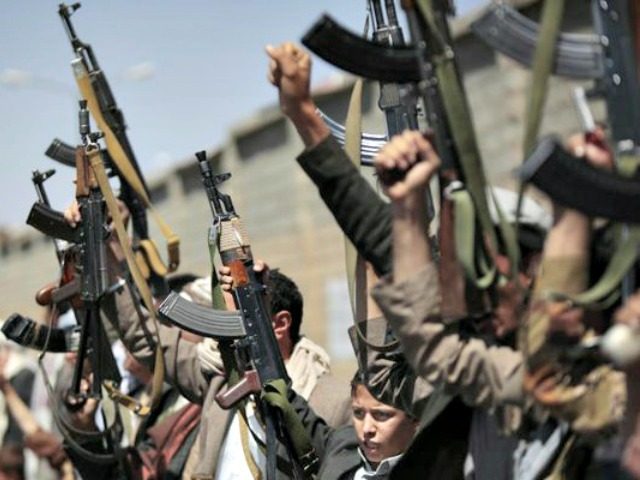Iran-allied Shiite Houthi rebels on Thursday reportedly hailed the U.S. Senate vote this week to end American support for their Saudi Arabia-led coalition rivals in Yemen, arguing that United States assistance has prolonged the conflict.
Mohammed Abdel-Salam, a spokesman for the Houthis, told the Associated Press (AP), “In reality, America is the one … selling weapons, and providing support” to the Saudi-led coalition that been fighting the Shiite rebels to restore the internationally recognized Yemeni government since March 2015 after the Shiite rebels captured the most of the country’s north, including the capital Sanaa.
In this way, the U.S. only “prolongs the conflict and the humanitarian crisis,” he added.
Mohammed Ali al-Houthi, who heads the Shiite rebels’ so-called Supreme Revolutionary Committees, urged other Western countries to take similar steps against what he described as “American, British, Israeli, Saudi, and Emirati hegemony over Yemen.”
Meanwhile, Moammar al-Iryani, the Yemeni government’s information minister, blasted the vote, telling AP it would only “embolden Iran and empower its proxy” the Houthis.
With Western support, the Saudi-led coalition has been fighting the Houthis to restore the internationally recognized Yemeni government since March 2015 after the Shiite rebels captured the most of the country’s north, including the capital Sanaa.
“The West, including the U.S., has provided the coalition with billions of dollars in arms, in addition to logistical support. In addition to arms, U.S. military experts have acted as advisers to the Saudi and Emirati command centers in Riyadh and elsewhere, and a U.S. pullout could also impact intelligence gathering,” AP acknowledges.
On Wednesday, the Senate voted to end U.S. support for the Saudi Sunni coalition with some Republicans aligning themselves with the Democrat minority, bringing Congress one step closer to an unprecedented rebuke of Trump’s foreign policy.
“Lawmakers in the Republican-controlled chamber approved a historic curtailment of presidential war powers that directs Trump ‘to remove the United States Armed Forces from hostilities in or affecting the Republic of Yemen’ within 30 days,” the Agence France-Presse (AFP) news agency reports.
The resolution is now heading to the Democrat-led House, which is likely to approve it, a move that would put Congress on a collision course with President Trump who has vowed to veto it.
On the same day of the Senate vote, Martin Griffiths, the United Nations envoy for Yemen, reported no progress in convincing the warring parties in Yemen to withdraw their forces from the key port of Hodeida and two other ports.
Fighting in Hodeida has prevented humanitarian aid from entering Yemen, which relies heavily on foreign imports for its supplies.
The brutal killing of U.S.-based Saudi journalist and kingdom critic Jamal Khashoggi last year prompted Congress to vote to end support for the Yemen war.
Some U.S. intelligence officials have accused Saudi Arabia of being involved in the heinous attacks.
“In addition to supporting the Saudi-led coalition, the U.S. has also been fighting al-Qaida in Yemen, mainly through drone warfare. It wasn’t immediately clear how a U.S. cutting of ties with the coalition could impact that campaign,” AP points out.
After the Senate vote, the White House accused the resolution of seeking “to override the president’s determination as commander in chief.”
“Should the House approve the measure, it would be the first ever passed by Congress to invoke the 1973 War Powers Resolution to directly curtail a president’s use of military powers,” AFP notes.

COMMENTS
Please let us know if you're having issues with commenting.